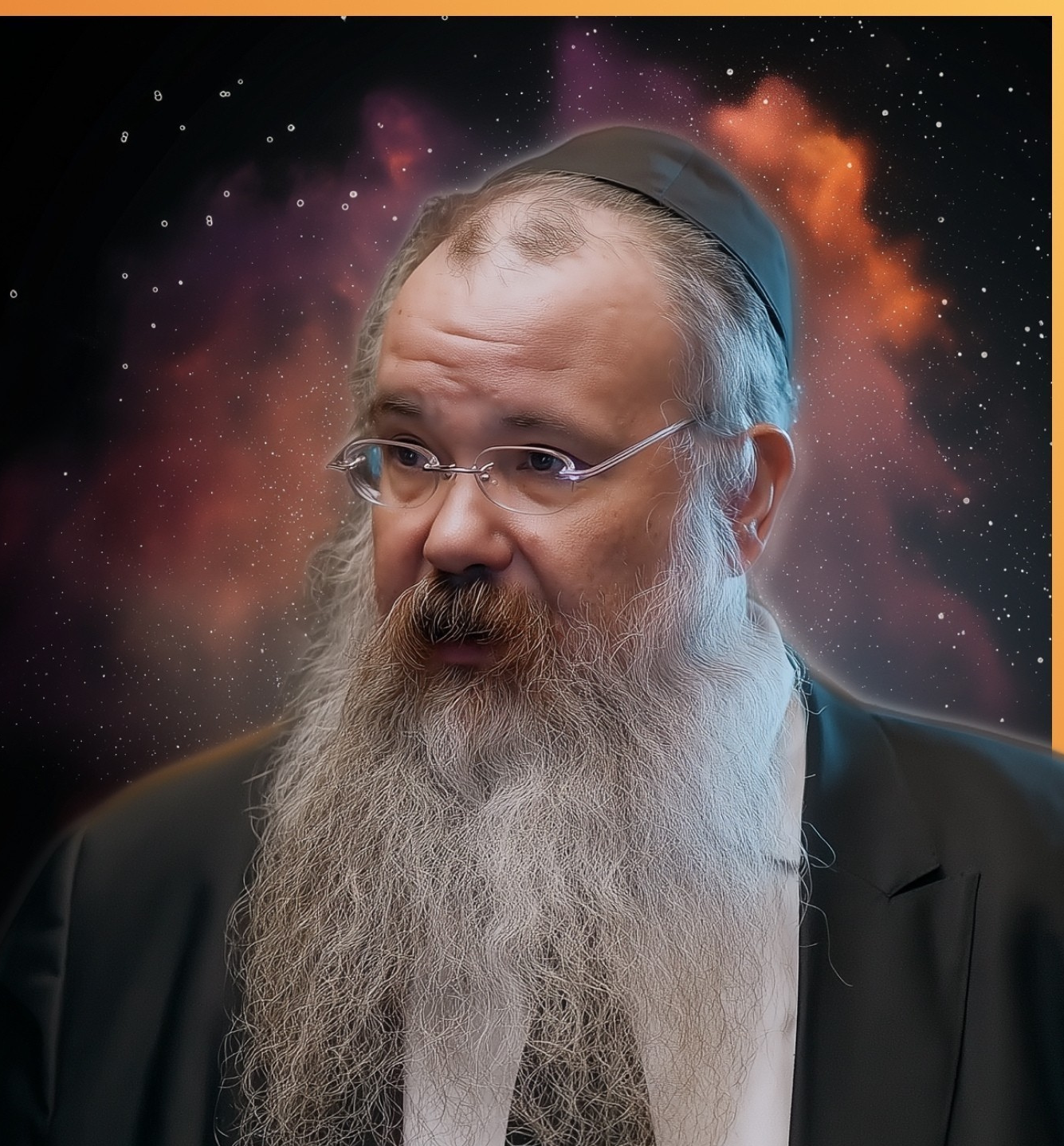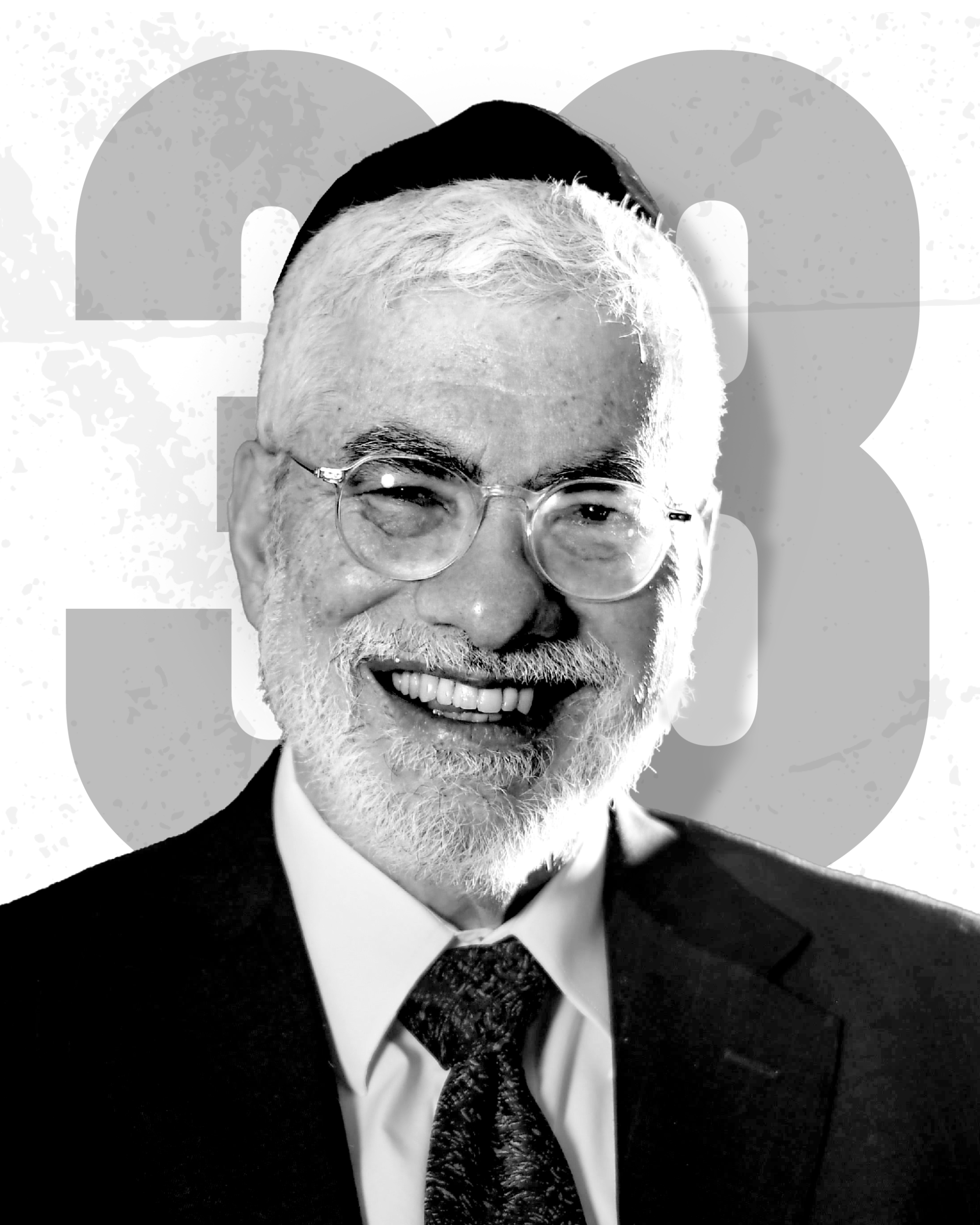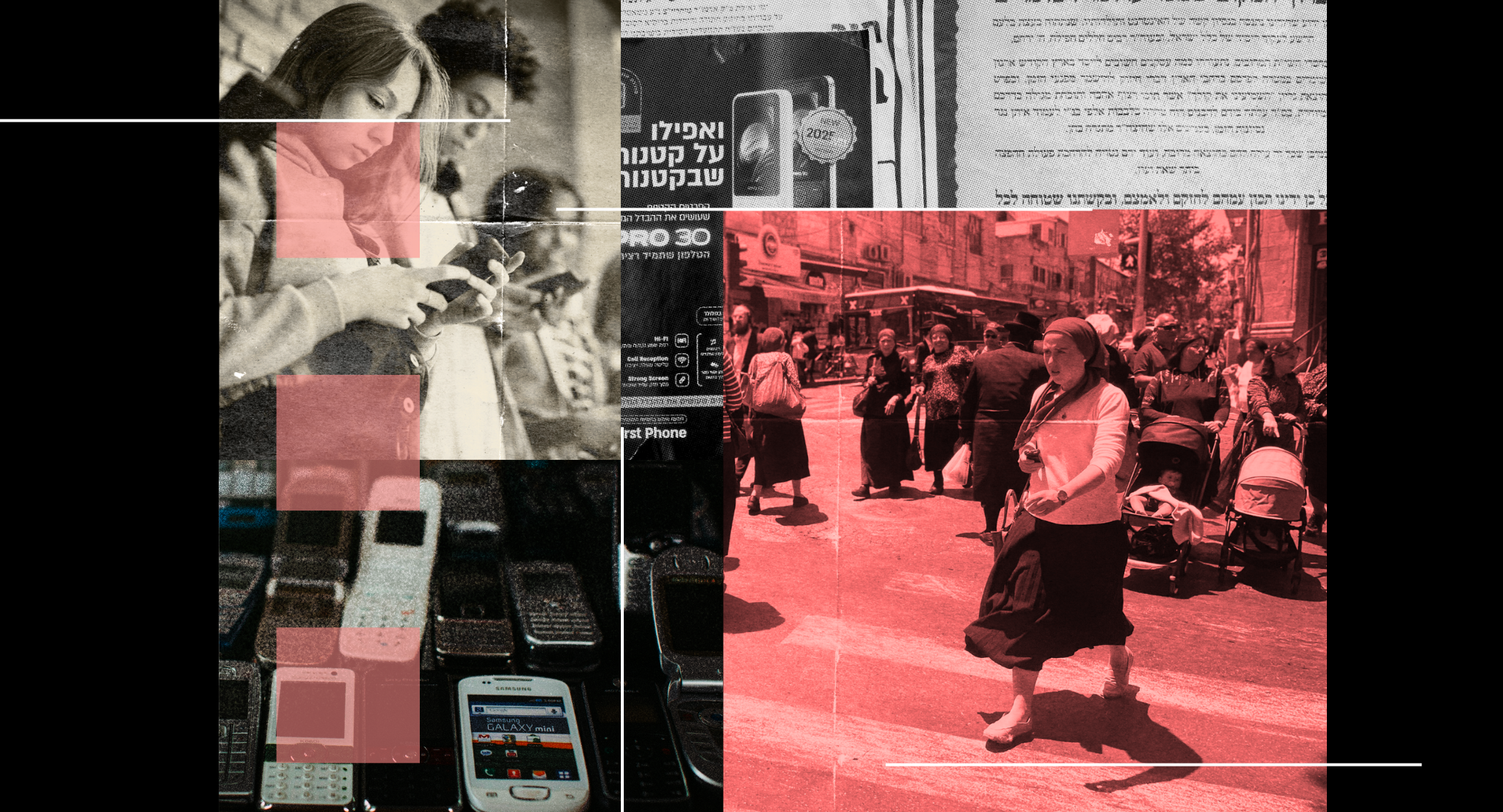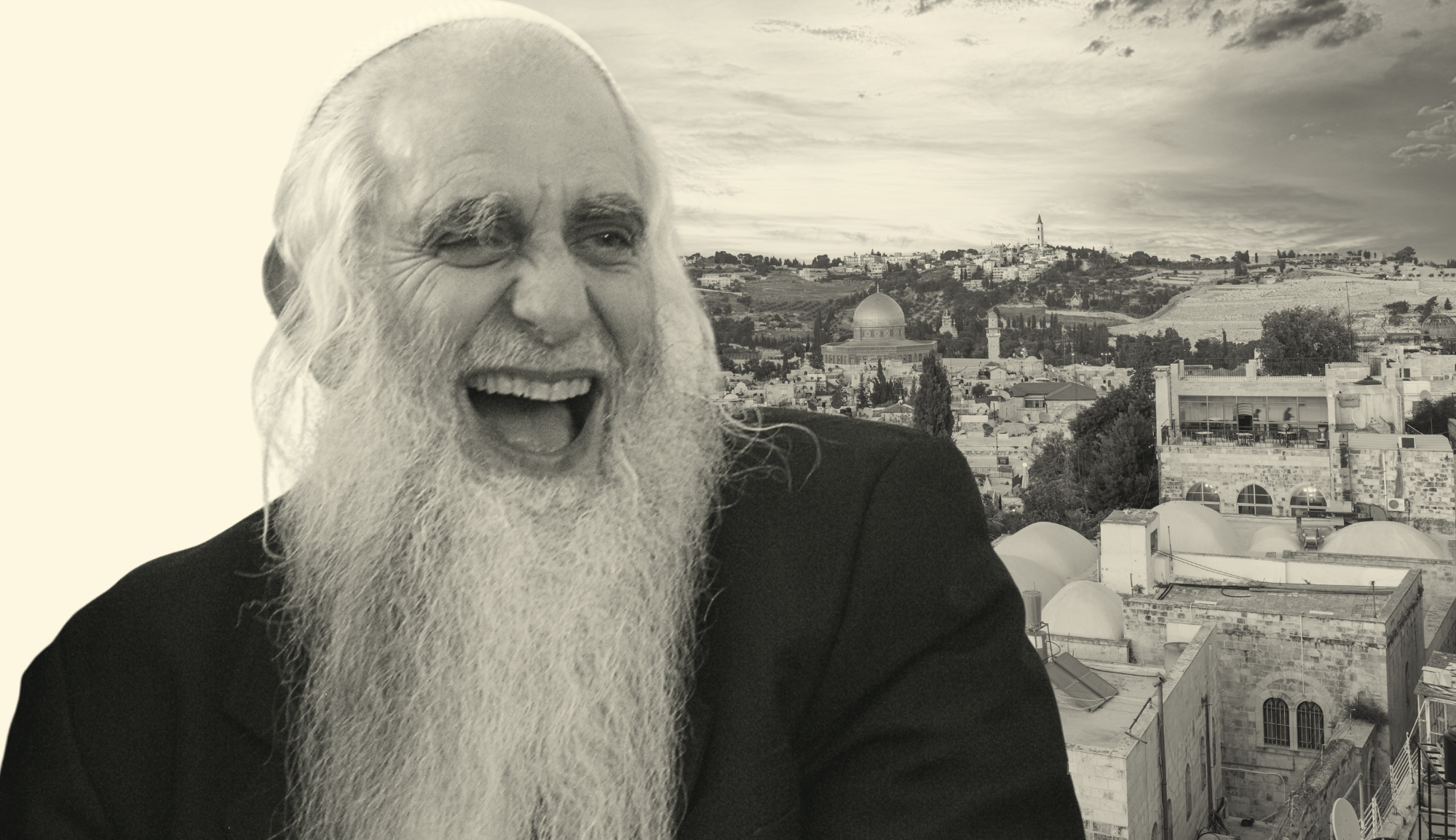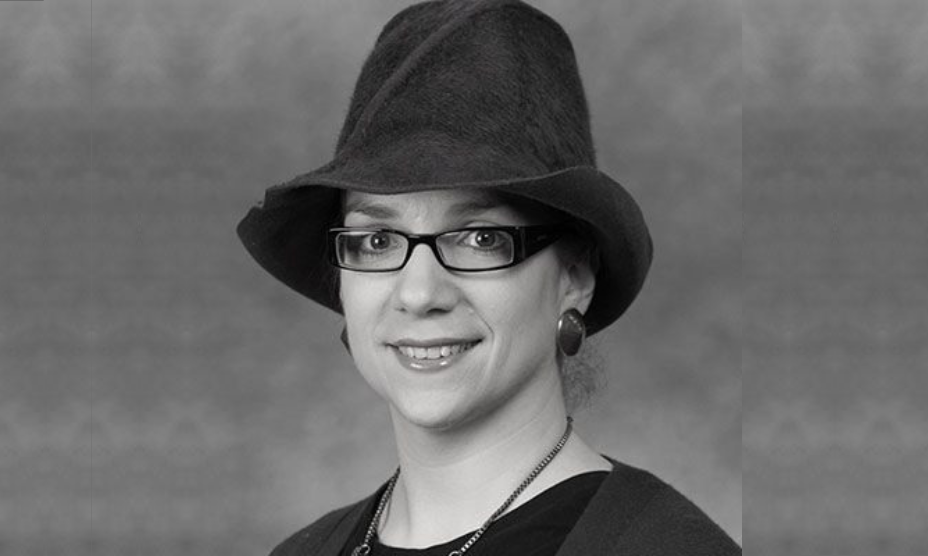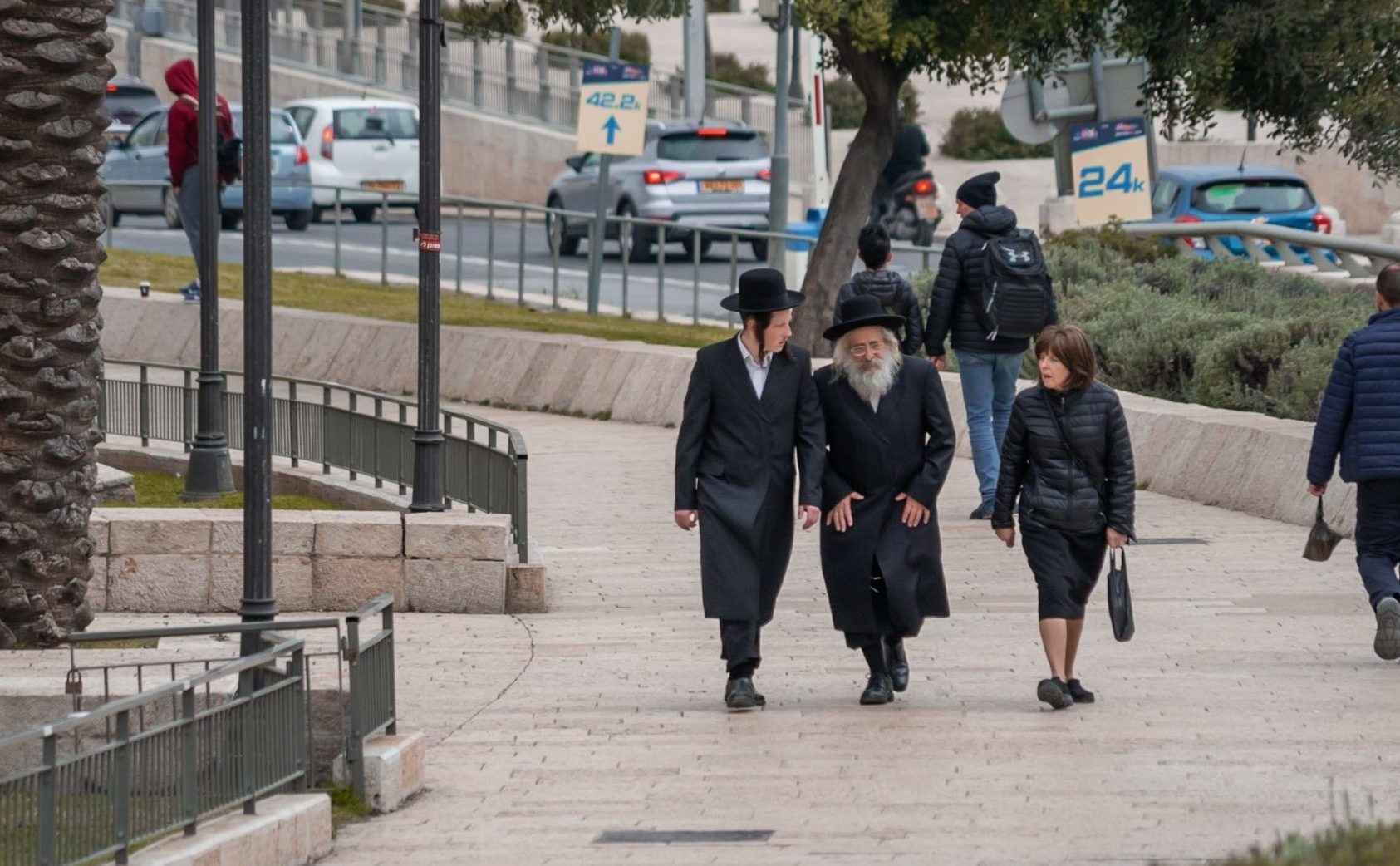Benny Morris: ‘We should have taken Rafah at the start’
Leading Israeli historian Benny Morris answers 18 questions on Israel, including Gaza, Palestinian-Israeli peace prospects, morality, and so much more.
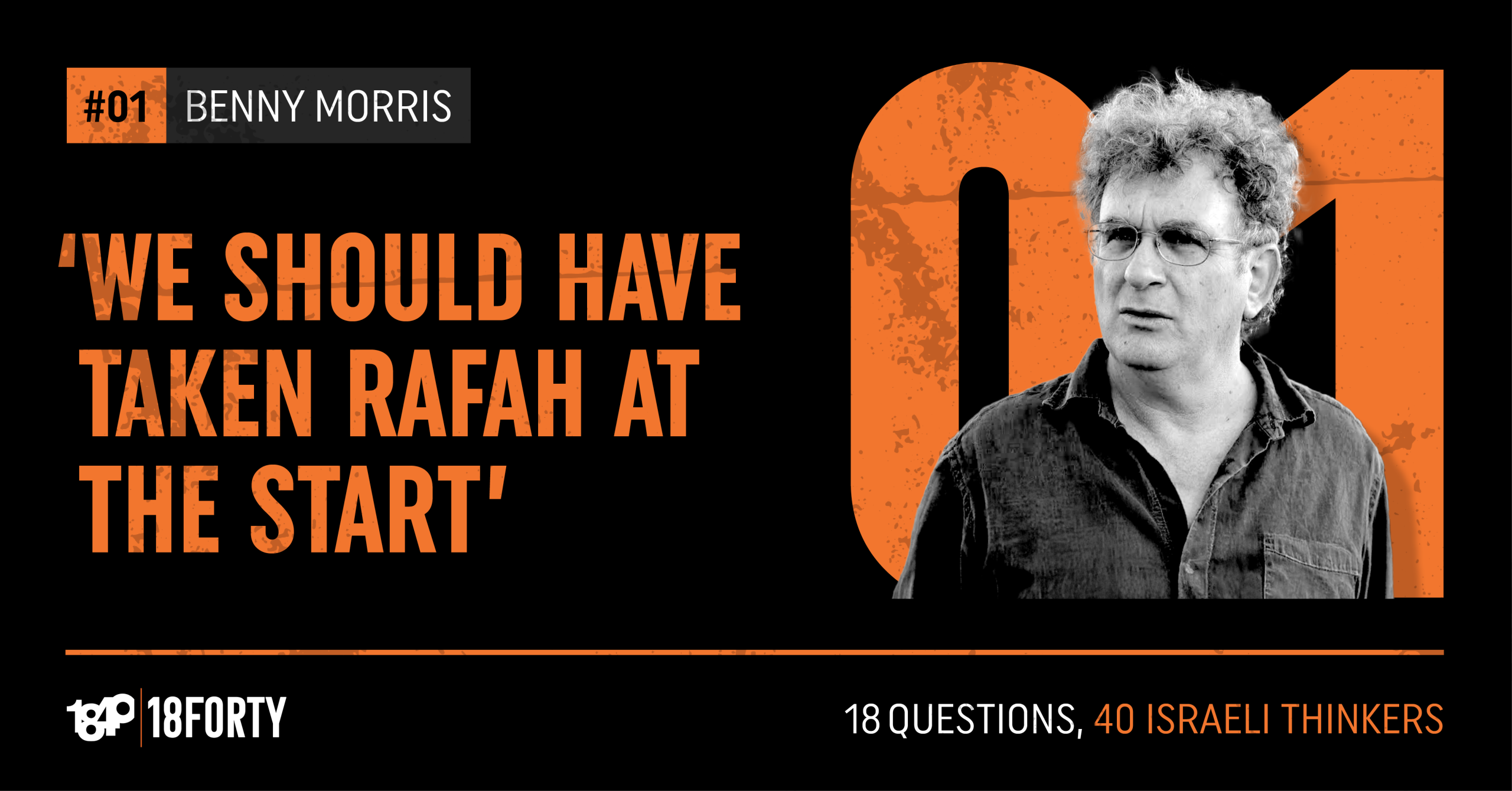
Summary
If you want to understand Israel, then you need to know Benny Morris.
Prof. Benny Morris is a leading Israeli historian who revolutionized the field of Israeli history by digging into the government’s declassified archives in the ‘80s, ushering in the era of “New Historians” who challenged traditional views of Israel’s history. After peace talks failed and the Second Intifada began in the early 2000s, his views drastically shifted regarding the Palestinian-Israeli conflict—specifically its prospects for resolution. Praised and criticized across the political divide, Benny Morris’ work lies at the bedrock of Israeli history today.
Now, he sits down with us to answer 18 questions on Israel, including what should happen with Gaza after the war, Palestinian-Israeli peace prospects, whether the IDF is the world’s most moral army, and so much more.
This interview was held on June 10.
Want to see our 18 questions? Here’s a peek:
- As an Israeli, and as a Jew, how are you feeling at this moment in Israeli history?
- What has been Israel’s greatest success and greatest mistake in its war against Hamas?
- How do you think Hamas views the outcome and aftermath of October 7—was it a success, in their eyes?
- What do you look for in deciding which Knesset party to vote for?
- Which is more important for Israel: Judaism or democracy?
- Is opposing Zionism inherently antisemitic?
- Is the IDF the world’s most moral army?
- What do you think is the most legitimate criticism leveled against Israel today?
- Do you think peace between Israelis and Palestinians will happen within your lifetime?
- What should happen with Gaza and the Palestinian-Israeli Conflict after the war?
Transcripts are lightly edited. Please excuse any imperfections.
Sruli Fruchter:
Do you think peace between Israelis and Palestinians will happen within your lifetime?
Benny Morris:
No.
Sruli Fruchter:
Can you elaborate?
Benny Morris:
There’s no need to elaborate. It won’t happen. Hi, I am Benny Morris. I’m an Israeli historian, and this is 18 Questions, 40 Israeli Thinkers from 18Forty.
Sruli Fruchter:
Brought to you by 18Forty, this is 18 Questions, 40 Israeli Thinkers. And I’m your host Sruli Fruchter. 18 Questions, 40 Israeli Thinkers is a new podcast that interviews the leading voices in Israel to explore those critical questions people are having today on Zionism, the Israel-Hamas war, democracy, morality, Judaism, peace, Israel’s future, and so much more. Every week we introduce you to fresh perspectives and challenging ideas about Israel from across the political spectrum that you won’t find anywhere else. So, if you’re the kind of person who wants to learn, understand, and dive deeper into Israel, then join us on our journey as we pose 18 pressing questions to the 40 Israeli journalists, scholars, and religious thinkers who you need to hear from today. If you want to understand Israel, then at least in my opinion, you need to know Benny Morris.
Professor Benny Morris is just one of those people who his bio does not do him justice. Yes, he’s Professor Emeritus of Middle Eastern History at Ben-Gurion University. And yes, he has authored over a dozen books, many of which are foundational to understanding Israel, specifically the early years, the middle of the conflict and so on. But it just doesn’t capture quite who Benny Morris is. Professor Benny Morris is a leading Israeli historian who revolutionized the field of Israeli history in the ’80s when he dug into the government’s declassified archives for the first time and ushered in the era of quote-unquote New Historians, which is how they’re traditionally known, who challenged traditional views of Israel’s history. But what I find most fascinating about Benny Morris is that in the early 2000s, after peace talks failed and the Second Intifada began, his views regarding the Palestinian-Israeli conflict shifted drastically, specifically regarding its prospects for peace. Was it still possible? Would it ever be possible? And what would peace even look like?
Today, he is praised and criticized across the political divide, but nevertheless, Benny Morris’s work still lies at the bedrock of Israeli history today. Now, Benny Morris joins us to answer 18 questions on Israel, including what should happen with Gaza after the war? Can we even imagine a future of Palestinian-Israeli peace, and is the IDF the world’s most moral army and so much more? Benny Morris is only the first of our 40 Israeli thinkers who we’re going to have on this podcast. So, if you have questions that you want us to be asking or guests that you want us to feature, shoot us an email at info@18forty.org, and be sure to subscribe to receive our episodes released every week on every Monday. And for the last point, I’ll emphasize that the Israeli thinkers that we want to have this podcast come from across the political spectrum with different religious backgrounds, different credentials, different perspectives. So, we want to have them all, but without further ado, here is 18 Questions with Benny Morris. So, let’s begin with the basics as an Israeli and as a Jew, how are you feeling at this moment in Israeli history?
Benny Morris:
Well, I’m quite despondent. Things have taken a very bad turn, I would say over the past two decades, but certainly over the past year and a half with October 7th being, of course, the high point for despondency.
Sruli Fruchter:
Can you say more?
Benny Morris:
Well, Netanyahu returning to power a year and a half ago, tried to overthrow the Israeli democratic system by lessening the power or reducing completely the power of the judiciary and essentially taking power into his own hands and that of his coalition members, but basically, it’s in his own hands. And this was followed of course by October 7th, which means that he diverted people’s attention, the bureaucracy’s attention, the army’s attention away from our outside neighbors onto something which was completely absurd. And this led to the big surprise and, in part, to the IDF’s incompetence on October 7th, 8th, for which he, of course, is ultimately responsible.
Sruli Fruchter:
What has been Israel’s greatest success and greatest mistake in its war against Hamas?
Benny Morris:
It’s a bit early to tell. I think it underrated the power. Firstly, it was caught by surprise, the intelligence services and the Army by Hamas’s attack. I think the mistake of underrating the Hamas was very important in Israel’s initial defeat, no other word for it. And they didn’t understand properly Hamas’s strategy of essentially using the tunnel network as a hideout and jumping assembly point and jumping off point to attack Israel. The tunnel network wasn’t understood properly, and Israel has been unable for eight months now to basically overcome the Hamas strategy of working out of a tunnel system. We’ve destroyed some tunnels, but apparently most of them still exist in Hamas hands and are functioning. And of course, added to that was the Hamas kidnapping of 250-odd hostages, which they were able to use as a human shield, a second human shield above and beyond the human shield supplied by Gaza’s civilian population. These three things together, the tunnels and the two human shields have made victory over the Hamas very elusive.
Sruli Fruchter:
Okay, but what would you say Israel’s greatest success has been for this war?
Benny Morris:
There you’ve really got me because it’s difficult to point to a success. We’ve killed thousands of Hamas fighters. The Army says 12, 15,000, maybe they’re right, but that leaves at least 20,000 on their feet, and people always forget during the past eight months, the Hamas has also recruited lots of new fighters. They don’t need much training. They’re not aircraft pilots they are people just have to know how to use a Kalashnikov or an RPG and run back into a tunnel. So, they probably have recruited an equal number of youngsters. And they’re very eager, the youngsters in the Gaza Strip, to join the Hamas. So, I don’t know how many fighters they have at this point. People always forget that the recruitment over the past eight months probably is increasing all the time. The rate of recruitment.
Successes, beyond killing a lot of those and retrieving some of the hostages, a considerable number of hostages, dead and alive, remain in Hamas hands and provide this continuing human shield, which means that part of the reason for the impossibility of properly penetrating the underground network are these hostages. Let me add one more thing. A terrible mistake, I think, was made strategically. This is not even in hindsight, people understood this from the start. We should have taken Rafah, the border between Egypt and the Gaza Strip through which the Hamas has been supplied over the years, partly through there. We should have taken the Rafah at the start of the operation, maybe even before taking Gaza City. This has emerged as a terrible mistake.
Sruli Fruchter:
How would you say Hamas views the aftermath and outcome of October 7th? Would you say it’s a success in their eyes?
Benny Morris:
Yeah, I think they view it as success. Killing Israeli civilians is not a problem for them. They don’t have the same morals as people do in the West. They also killed 350 soldiers on October 7th, 850 civilians, 350 soldiers, and took hostage 250 Israelis, most of them civilians. They see that as a great success. I think Sinwar is seen and will be seen in the future in the Arab world as a type of Saladin, Salah al-Din, a man who in the 12th century defeated the Crusader kingdom as they viewed Zionism and Israel. Sinwar will be seen as a major victor over the Zionist project. And if it collapses, he will be seen as the man who began the collapse. And if it doesn’t collapse, you’ll still be seen as a victor, a man who avenged much of the wrong, which the Palestinians, so they believe, in fact objectively also have some justice in that claim. Avenging the injustice done to the Palestinians over the last 100 years. That’s how it’ll be seen in Arab world.
Sruli Fruchter:
What do you look for in deciding which Knesset party to vote for?
Benny Morris:
Well, I would say pragmatism is important and honesty is important. And unfortunately, much of our Knesset, especially the coalition Knesset members are a bunch of incompetents and corrupt people and shown the way by a very corrupt prime minister, I mean the most corrupt, obviously, Israel has ever had and the most incompetent in fact Israel has ever had. Look at October 7th. This is a real problem, that is the level of competence of Israel’s political leaders has declined, I don’t know if it’s steadily, but has declined since ’48. In ’48 Israel was led by a competent leadership and very pragmatic people. Ben-Gurion was authoritarian, but he understood that you have to work within some form of democratic system and abide by the rules of the system. The present leadership doesn’t understand that and doesn’t care about that. It wants power in its own hands.
Netanyahu is of course, motivated also by personal considerations. He wants to remain in power, but also to stay out of jail. And he should have been in jail years ago, and he will eventually, I hope, end up in jail. But he is on trial for a number of corruption charges, and he hopes to stave off the conviction and sentencing by remaining in power. That’s a major part, I believe, of what drives him today. And people who cling onto him are enjoying the benefits of corruption.
Sruli Fruchter:
Which is more important for Israel: Judaism or democracy?
Benny Morris:
Well, that’s a hard one. I think most Israelis want the country to be both Jewish and democratic. I think still this is true about most Israelis, though Netanyahu has had an effect also on how many Israelis actually want to remain in a democracy. I think that number is diminishing. They think other things are more important, but until now, I think a majority still want both and some sort of balance between the two.
Sruli Fruchter:
But which would you say is more important, if you had to say one?
Benny Morris:
I am not sure I can answer that. I think democracy is very important. I don’t want to end up in jail or I don’t want secret policemen to barge into my house in the middle of the night. That’s very important.
Sruli Fruchter:
Is there anything miraculous about Israeli history?
Benny Morris:
Yeah, yeah. The whole thing is miraculous. The rise of the State of Israel, the emergence of a Jewish state in the Middle East, in a hostile environment, in a world which was chaotic and not necessarily friendly to the Jews. The fact that a Jewish state emerged because of a whole concatenation of circumstances, Russia supporting us, America supporting us, the western democracies basically supporting us. All of this happened in ’48 today. If you tried to get a vote in favor of a Jewish state emerging in the United Nations with 200 members, maybe 30 members would support such a thing. In other words, it wouldn’t have international backing legitimacy. That in itself is a great miracle. Beating the Arab states is not so much of a miracle as … I have actually looked into that. We were the stronger side, despite being very small in numbers, but we were the stronger side, and the stronger side usually wins in wars. But the whole thing has been miraculous in the sense that, as I say, establishing a Jewish state in such an environment and following the Holocaust is a sort of a miracle, yes.
Sruli Fruchter:
Now that Israel already exists, what’s the purpose of Zionism?
Benny Morris:
Well, Zionism meant to establish a Jewish state and to perpetuate the existence of a Jewish state, and that’s Zionism, perpetuating a Jewish state. Some people have taken it further and said, not only should it be perpetuated, but should also expand into additional territories beyond those allocated by the United Nations or conquered in the course of the ’48 War.
Some people think that’s Zionism, I don’t. And this is part of the reason of what has led us into this very difficult geopolitical and international situation.
Sruli Fruchter:
What do you think Zionism is?
Benny Morris:
As I say, it’s the creation of a Jewish state and the perpetuation of a Jewish state.
Sruli Fruchter:
Is opposing Zionism inherently antisemitic?
Benny Morris:
No, not necessarily. There are people who are probably honest anti-Zionists who are not antisemites. They don’t have anything against Jews. They like Jews. But there is an overlap today of anti-Zionism and antisemitism. In other words, many people who say they are anti-Zionists are also driven by antisemitic passions. And I would probably say that all antisemites are anti-Zionists, but not all anti-Zionists are antisemites.
Sruli Fruchter:
Can you elaborate a little bit more about that distinction that you were just making, when opposing Zionism is antisemitic and when it’s not antisemitic?
Benny Morris:
There is antisemitism in the world. There’s antisemitism in the Christian world, there’s antisemitism in the Muslim world, and it’s deeply rooted, and it’s been there for hundreds and hundreds of years, 2000 years for Christian antisemitism. With the emergence of Zionism and the growth of Zionism, and eventually the emergence of a Jewish state, antisemites opposed Jewish statehood. And beside those who opposed Jewish statehood for antisemitic reasons, there were also people who thought it’s wrong to establish, perhaps morally wrong because it would be at the expense of the local Arab population, or politically wrong in the sense that it couldn’t last. People like Glubb Pasha who was the commander of the Jordanian army in 1948, more or less said, “The end of the Jewish state will be like that of the Crusaders.” They held on for about 200 years on the edge of the Middle East, fed through Europe. But this applies to Zionism as well in some way. But Zionists won’t be able to hold out against the whole surrounding inimical Arab world and Muslim world, which is even wider.
So, for practical reasons, there were people who believed that Zionism made no sense that establishing a Jewish state here made no sense because it couldn’t last. And as I say, there were those who opposed it also because of the injustice they felt would be caused to the local Arab population. It would be at expense of the Arabs. And they were right of course, in the end, this did happen. Today, you can see this overlap between anti-Zionism and antisemitism emerging in the West and among the Arab world. But they prefer to call what their opposition to Israel anti-Zionism and not call it antisemitism or say it originates in antisemitism because antisemitism still has something of a bad name since the Holocaust, though, that bad name has been fading over the decades since the Holocaust, of which many people don’t know anything or don’t know very much. That’s a real problem for us, for Israel and the Jews in general. This forgetfulness about what happened in Europe during World War II to the Jews.
Sruli Fruchter:
Is the IDF the world’s most moral army?
Benny Morris:
I don’t know, who knows? Maybe the army of Costa Rica, which doesn’t exist. Incidentally, Costa Rica is one of the few states in the world which doesn’t actually have an army, but there probably other moral armies, especially armies not involved in wars. It’s easier to sound and be moral when you’re not involved in wars. Wars often involve immorality, but I would say that the IDF has behaved, over the decades, quite morally, or if you has tried to abide by purity of arms as the doctrine was called, and the Haganah and the early IDF, has tried to abide by that, tried not to harm women and children and non-combatants in the course of war. This is of course, extremely difficult to do when you’re fighting in areas which are populated by large civilian populations. If you think of the ’67 war in which Israel conquered the West Bank and the Gaza Strip, there were relatively few civilian casualties in those areas when Israel conquered them in a matter of days.
This war in Gaza with a very large and with crowded urban population, killing civilians has been inevitable because the Hamas and the Islamic Jihad hide between, among, under civilians in actual their blocks of flats, in their very flats, under their flats, under the hospitals, inside the hospitals, under the schools, inside the schools. This has made a collateral damage and killing, inevitable in hunting down the Hamas and Islamic Jihad fighters. They knew it and they counted on that when they went to war on October 7th and committed the slaughter and rape and whatever of Israelis in the south, they knew that Israel would retaliate and retaliate strongly, and they counted on that, that Israel would be killing lots of civilians and this would be photographed and broadcast across the world in television stations and newspapers, etc. And they would benefit from favorable, international opinion, and Israel would be condemned for killing these civilians.
And we’ve killed thousands and thousands of them. Maybe not in the number of the Hamas, hands out, the Hamas probably exaggerates numbers, but thousands of women and children have been killed in the course of these operations. As I say, more or less, inevitably, there’s no way we could have gone after them and killed them, which is what we should be doing and are doing without killing civilians.
Sruli Fruchter:
Which question do you think we’re up to?
Benny Morris:
Maybe the end.
Sruli Fruchter:
We’re up to question 10.
Benny Morris:
10. Okay.
Sruli Fruchter:
Yeah, halfway.
Benny Morris:
Yeah. Okay, go ahead.
Sruli Fruchter:
If you were making the case for Israel, where would you begin?
Benny Morris:
You have to begin at the beginning. You have to begin at why Zionism exists, international discrimination, oppression of Jews and the need for the Jews who are a people, not just a religion to have a state of their own. The Arabs have 23 or 24 states, whatever the number, Jews should have one state. Einstein pointed that out in a letter to Nehru back in 1947 when he was trying to persuade the prime minister of the emergent Indian state to support Israeli independence or the establishment of a Jewish state. And he said, “The Arabs have lots of states, we should have a little sliver of a state the Jews.” So, I think that’s where I would begin. And then I would go on to say that the Zionist enterprise was resisted and attacked sporadically and growingly over the decades by the Arab population of Palestine and eventually by the surrounding Arab states and defended itself.
And in doing this, it inevitably also caused a pain to the Palestinians and the Arabs. The Palestinians did not want to reach a compromise. The Zionists led by pragmatic leaders, Ben-Gurion and Sharett, Weizmann, were willing to compromise and have a two-state settlement. Such solutions were offered to the Arabs and the Jews in 1937, 1947, the year 2000, 2008. And the Palestinians have consistently rejected the idea of a compromise based on partition in two states. And this has inevitably led to a continuation of the struggle over Palestine or the land of Israel, which is unfortunate but that’s where we are.
Sruli Fruchter:
Can questioning the actions of Israel’s government and army. Even in the context of this current war, be considered a valid form of love and patriotism for Israel?
Benny Morris:
I think so. You have to question a government. You have to doubt and criticize a government, your government, and if it does things wrong, that’s what you should do. It’s true that there is a measure of subversion in doing so during wartime, but this isn’t really a normal type of war. We’re not in the middle of the 1948 war or the 1973 war. This has gone on for eight months and it’s gone for another 10 or 20 months. Who knows how long it’s going to go on and should be just an excuse to hold one’s tongue and not object to anything the idiots running this country at the moment are doing that. Doesn’t make any sense.
Sruli Fruchter:
What would you say is the most legitimate criticism leveled against Israel today?
Benny Morris:
I think the major criticism should be Israel under the incompetent Netanyahu has not lined up with America in trying to find a political settlement which would get us out of this rut in which we’re stuck at the moment. A political settlement means some form of Arab or Palestinian rule over the Gaza Strip, which would shunt aside Hamas. So, long as there is no alternative for the Arabs in the Gaza Strip or the Arabs around us or the international community, no alternative to the Hamas ruling the place or the IDF ruling, the Gaza Strip. This war will continue in one form or another, only in the Gaza Strip, perhaps say in the north with Hezbollah. Who knows? I think that’s a major mistake. I don’t know how exactly one would empower the Palestinian Authority, which controls parts of the West Bank to take over the Gaza Strip or a coalition of Arab states and the Palestinian authority, I don’t know how you would empower them there, how you would get them to suppress the Hamas without use of the IDF.
But that should be the goal. And this hasn’t been the goal of the Israeli government under Netanyahu until now. It seems to think that the IDF can just stay there and keep fighting the Hamas and unable to destroy the Hamas properly will have daily shootouts with the Hamas and the Gaza City or around Rafah or Khan Yunis. And this can go on for years, the war of attrition between a conquering, occupying army and a guerrilla movement or terrorist movement working out of tunnels.
And I don’t think the Israeli public will actually stand for this for very long, especially as some of the public doesn’t even serve in the army and doesn’t seem to care at all about Israeli casualties or anything else except their own needs.
Sruli Fruchter:
Are there parts of Palestinian-Israeli history that it is unhelpful for people to discuss?
Benny Morris:
No, no. History should be an open book. People should know what actually happened, not just what people were trying to suppress at certain times so that people wouldn’t know about what happened. People should know what happened, and the history should be an open book. That’s my belief about what historians should do. Israeli historians in the ’40s, ’50s, ’60s tried to suppress, shove under the carpet things which made Zionism, or the Zionist enterprise or Israel look unpleasant, but that can’t continue for long. As incidentally, Palestinian historians or so-called historians have tried to keep out of the books nasty things Palestinians have thought and said and done, but that’s not really historiography and people should know what happened.
Sruli Fruchter:
Do you think peace between Israelis and Palestinians will happen within your lifetime?
Benny Morris:
No.
Sruli Fruchter:
Can you elaborate?
Benny Morris:
There’s no need to elaborate. It won’t happen. Neither side is willing to do the things which make peace possible, which means acceptance basically of a two-state solution, making big territorial compromises, recognizing the legitimacy of the other side. Israelis used to recognize the legitimacy of Palestinian claims, that is secular liberal Israelis used to even while of course endorsing Zionism. Today, more and more Israelis don’t recognize Palestinian claims or legitimacy at all. And Palestinians have never recognized the legitimacy of Zionism or Zionist claims, the legitimacy of Israel and continue not to recognize its legitimacy. And so long as that basis of psychological and the emotional basis is important, there won’t be a two-state settlement.
Sruli Fruchter:
What should happen with Gaza and the Palestinian-Israeli conflict after the war?
Benny Morris:
That’s a big one. I have no idea. There should be, as I said, I think some sort of deal in which the Western powers and the Arab moderate states, the Sunni states and the Palestinian authority in some way will control the Gaza Strip in place of the Hamas and in place of the IDF because if both Hamas rule and IDF rule are not a recipe for peace in the future in the Gaza Strip. But this is only a transitional stage or step towards a two-state settlement, which is the only possible settlement which could lead to peace. As I say, I don’t think a two-state settlement is on the cards. I don’t think either people is ready for it at the moment. Maybe 20, 30 years’ time, it’ll happen but I doubt it because the whole settlement enterprise subverts the idea of a two-state settlement from the Jewish side, which of course, causes Arabs to dig in their heels and say the Jews are unwilling to make … They’re just undermining, subverting a possible peace agreement, why should we endorse it?
Sruli Fruchter:
Where do you identify on Israel’s political and religious spectrum? And do you have friends on the quote, unquote, other side?
Benny Morris:
Well, firstly, I don’t have any friends anywhere. I’m exaggerating. No, I am a moderate Israeli liberal. I’m not a leftist or a rightist really, even though I’m of the left, I suppose.
Sruli Fruchter:
Do you have friends who are on either extreme?
Benny Morris:
No. No.
Sruli Fruchter:
And to close us off right now, do you have more hope or fear for Israel and the Jewish people?
Benny Morris:
More fear, yeah, I’m definitely pessimistic about what’s happening and what the future holds.
Sruli Fruchter:
Benny Morris, thank you so much for this opportunity.
Benny Morris:
My pleasure.
Sruli Fruchter:
Benny Morris is just a fascinating figure in the Israeli world among Israeli historians. His ideological shifts, I just think, are particularly interesting. Again, I mentioned this in the intro, but the fact that you have someone who is such a public figure, and his work was so public, to have so openly and publicly shifted his views is very interesting. There’s a lot to unpack there, and that’s why we wanted to have him as one of our first thinkers. I really encourage you to read more of his books, to read his articles. He’s a phenomenal writer, prolific writer, excellent with his ideas. And he is also on a lot of podcasts. He was on, Lex Fridman has this really cool podcast and it’s about four and a half hours. So, it’s definitely an investment if you’re an 18Forty fan. It’ll make you very grateful for our long episodes, which are closer to two hours, but very worthwhile, very interesting to see.
As always, for all things Jewish ideas, Jewish questions, the Jewish world with modernity, visit us on 18forty.org. That’s one eight, F-O-R-T-Y.org where you can find podcasts, recommended readings, essays, programs, so many different things. It’s really this phenomenal community and database for everyone to learn and grow and connect together. And again, if you are interested in sponsoring an episode of 18 Questions, 40 Israeli Thinkers, shoot us an email, you know it, info@18forty.org.
Recommended Podcasts
podcast
Elisheva Carlebach & Debra Kaplan: The Unknown History of Women in Jewish Life
We speak with Professors Elisheva Carlebach and Debra Kaplan about women’s religious, social, and communal roles in early modern Jewish life.
podcast
Haviv Rettig Gur: ‘Hamas is upset the death toll in Gaza isn’t higher’
Haviv answers 18 questions on Israel.
podcast
Menachem Penner & Gedalia Robinson: A Child’s Orientation
In this episode of the 18Forty Podcast, we talk to Rabbi Menachem Penner—dean of RIETS at Yeshiva University—and his son Gedalia—a musician, cantor-in-training, and member of the LGBTQ community—about their experience in reconciling their family’s religious tradition with Gedalia’s sexual orientation.
podcast
Chava Green: ‘From God’s perspective, men and women are exactly the same’
Dr. Chava Green joins us to discuss the role of women in the Messianic Era and seeing God in the everyday.
podcast
Chava Green: What Is Chabad’s Feminist Vision?
In this episode of the 18Forty Podcast, we talk to Chava Green—an emerging scholar who wrote her doctoral dissertation on “the Hasidic face of feminism”—about how the Lubavitcher Rebbe infused American sensibilities with mystical sensitivities, paying particular attention to the role of women.
podcast
Pawel Maciejko: Sabbateanism and the Roots of Secular Judaism
In this episode of the 18Forty Podcast, we talk to historian and professor Pawel Maciejko about the false messiah Sabbatai Zevi, Sabbateanism, and the roots of Jewish secularism.
podcast
Eitan Webb and Ari Israel: What’s Next for Jewish Students in Secular College?
We speak with Rabbis Eitan Webb and Ari Israel about Jewish life on college campuses today.
podcast
Shais Taub: ‘God gave us an ego to protect us’
Rabbi Shais Taub discusses how mysticism can revive the Jewish People.
podcast
Einat Wilf: ‘Jews Are Never Allowed To Win, and Arabs Are Never Allowed to Lose’
The true enemy in Israel’s current war, Einat Wilf says, is what she calls “Palestinianism.”
podcast
Why 1840?
In this episode of the 18Forty Podcast, we sit down for a special podcast with our host, David Bashevkin, to discuss the podcast’s namesake, the year 1840.
podcast
Larry and Tzipora Rothwachs: Here Without You — A Child’s Eating Disorder
In this episode of the 18Forty Podcast, we talk to Rabbi Larry Rothwachs and his daughter Tzipora about the relationship of a father and daughter through distance while battling an eating disorder.
podcast
Dovid Bashevkin: A Reform Rabbi Interviews an Orthodox Rabbi [Denominations 2/2]
David Bashevkin answers questions from Diana Fersko about denominations and Jewish Peoplehood.
podcast
Mark Wildes: Is Modern Orthodox Outreach the Way Forward?
We speak with Mark Wildes, founder and director of Manhattan Jewish Experience, about Modern Orthodox outreach.
podcast
Child & Parental Alienation: Keeping Families Together
In this episode of the 18Forty Podcast, we discuss parental alienation.
podcast
Eitan Hersh: Can the Jewish Left Talk With the Jewish Right?
In this episode of the 18Forty Podcast, we talk to Eitan Hersh, a professor of political science at Tufts University, about teaching students of radically different political and religious views how to speak to one another.
podcast
The Dardik Family: A Child Moves Away From Zionism
In this episode of the 18Forty Podcast, we talk to Judah, Naomi, and Aharon Akiva Dardik—an olim family whose son went to military jail for refusing to follow to IDF orders and has since become a ceasefire activist at Columbia University—about sticking together as a family despite their fundamental differences.
podcast
Bruce Feiler: The Stories That Bind Us
In this episode of the 18Forty Podcast, we talk to author Bruce Feiler about family narratives.
podcast
Michael Oren: ‘We are living in biblical times’
Israel is a heroic country, Michael Oren believes—but he concedes that it is a flawed heroic country.
podcast
Jonathan Rosenblum: ‘Would you want to live in a country run by Haredim?’
Talking about the “Haredi community” is a misnomer, Jonathan Rosenblum says, and simplifies its diversity of thought and perspectives.
podcast
Leah Forster: Of Comedy and Community
In this episode of the 18Forty Podcast, David sits down with Leah Forster, a world-famous ex-Hasidic comedian, to talk about how her journey has affected her comedy.
podcast
Liel Leibovitz and Lisa Ann Sandell: When A Spouse Finds Faith
In this episode of the 18Forty Podcast, we talk to Liel Leibovitz and Lisa Ann Sandell about what happens when one partner wants to increase their religious practice.
podcast
David Bashevkin: My Mental Health Journey
In this episode of the 18Forty Podcast, David Bashevkin opens up about his mental health journey.
podcast
How Different Jewish Communities Date
On this episode of 18Forty, we explore the world of Jewish dating.
Recommended Articles
Essays
The Four Pillars That Actually Shape Jewish High School
These four forces are quietly determining what our schools prioritize—and what they neglect.
Essays
3 Arguments for God’s Existence
Perhaps the most fundamental question any religious believer can ask is: “Does God exist?” It’s time we find good answers.
Essays
Why So Many Laws? Mishpatim and the Making of a Moral Society
What Mishpatim teaches about human nature, moral fragility, and the structures a just society requires.
Essays
5 Ways the Torah Trains Us to Love Our Enemies
In Parshat Mishpatim, the Torah embeds one of its most radical emotional demands inside its civil code: Help your enemy.
Essays
Towards the Derech: How Does a Reform Jew Return?
The “way” of myself and other formerly Reform Jews is unclear, but our desire for spiritual growth is sincere.
Essays
(What) Do Jews Believe About the Afterlife?
Christianity’s focus on the afterlife historically discouraged Jews from discussing it—but Jews very much believe in it.
Essays
5 Perspectives on Sinai in an Age of Empiricism
Parshat Yitro anchors Judaism in revelation. But what does Sinai mean in a world where proof is the highest authority?
Essays
Why Is Meir Kahane Making a Comeback Among Orthodox Jews?
Israeli minister Itamar Ben-Gvir wears the mantle of Kahane in Israel. Many Orthodox Jews welcomed him with open arms.
Essays
How Rav Kook and the Lubavitcher Rebbe Saw the Jewish People
What if the deepest encounter with God is found not in texts, but in a people? Rav Kook and the Lubavitcher Rebbe…
Essays
How Archaeology Rewrote the History of Tefillin
From verses in Parshat Bo to desert caves, tefillin emerge as one of Judaism’s earliest embodied practices.
Essays
A Letter to Children Estranged From Their Parents
Children cannot truly avoid the consequences of estrangement. Their parents’ shadow will always follow.
Essays
Is Judaism Fundamentally Zionist?
God promised the Land of Israel to the Jewish People, so why are some rabbis anti-Zionists?
Essays
The Siddur Has a Lot of Prayers. Where Did They Come From?
Between early prayer books, kabbalistic additions, and the printing press, the siddur we have today is filled with prayers from across history.
Essays
Rabbi Eliezer Berkovits’ Complicated Portrait of Faith
Meet a traditional rabbi in an untraditional time, willing to deal with faith in all its beauty—and hardships.
Essays
What Are the Origins of the Oral Torah?
A bedrock principle of Orthodox Judaism is that we received not only the Written Torah at Sinai but also the oral one—does…
Essays
What Haredim Can Teach Us About Getting Off Our Smartphones
Kosher phones make calls and send texts. No Instagram, no TikTok, and no distractions. Maybe it’s time the world embraces them.
Essays
‘Don’t Wait as Long as I Did’: Seven Stories of Aliyah
A 94-year-old Holocaust survivor, a lone soldier, and more. Here are seven olim sharing their stories of aliyah.
Essays
The Israeli Peace Activist and Religious Leader You Need to Know
Rav Froman was a complicated character in Israel and in his own home city of Tekoa, as people from both the right…
Essays
A Letter to Parents of Intergenerational Divergees
Children don’t come with guarantees. Washing machines come with guarantees.
Essays
Rav Tzadok of Lublin on History and Halacha
Rav Tzadok held fascinating views on the history of rabbinic Judaism, but his writings are often cryptic and challenging to understand. Here’s…
Essays
The Hardal Community Explained: Torah, Am Yisrael, and Redemption
Religious Zionism is a spectrum—and I would place my Hardal community on the right of that spectrum.
Essays
A Brief History of Jewish Mysticism
To talk about the history of Jewish mysticism is in many ways to talk about the history of the mystical community.
Essays
‘It’s Not Great’: What’s the Deal With Jewish Education?
Jewish students, parents, and educators weigh in about what helps, what hurts, and what we need to do.
Essays
The History of Halacha, from the Torah to Today
Missing from Tanach—the Jewish People’s origin story—is one of the central aspects of Jewish life: the observance of halacha. Why?
Recommended Videos
videos
Rachel Goldberg-Polin and Jon Polin: How Torah Gives Us Faith and Hope
In this special Simchas Torah episode of the 18Forty Podcast, we speak with Rachel Goldberg-Polin and Jon Polin—parents of murdered hostage Hersh…
videos
An Orthodox Rabbi Interviews a Reform Rabbi | Dovid Bashevkin & Diana Fersko
In this episode of the 18Forty Podcast, we speak with Diana Fersko, senior rabbi of the Village Temple Reform synagogue, about denominations…
videos
A Reform Rabbi Interviews an Orthodox Rabbi | Dovid Bashevkin & Diana Fersko (Part 2)
In this episode of the 18Forty Podcast, David Bashevkin answers questions from Diana Fersko, senior rabbi of the Village Temple Reform synagogue,…
videos
Is Modern Orthodox kiruv the way forward for American Jews? | Dovid Bashevkin & Mark Wildes
In this episode of the 18Forty Podcast, we speak with Mark Wildes, founder and director of Manhattan Jewish Experience, about Modern Orthodox…
videos
Joey Rosenfeld: What Does Jewish Mysticism Say About This Moment?
We speak with Joey Rosenfeld about how our generation can understand suffering.
videos
The Hasidic Rebbe Who Left it All — And Then Returned
Why did this Hasidic Rebbe move from Poland to Israel, only to change his name, leave religion, and disappear to Los Angeles?
videos
Mysticism
In a disenchanted world, we can turn to mysticism to find enchantment, to remember that there is something more under the surface…
videos
What are Israel’s Greatest Success and Mistake in the Gaza War?
What has been Israel’s greatest success and greatest mistake?
videos
Zevi Slavin: ‘To be a mystic is to be human at its most raw’
As a Chabad Hasid, Rabbi Zevi Slavin’s formative years were spent immersed in the rich traditions of Chassidut and Kabbala.
videos
Why Naftuli Moster Left Haredi Education Activism
We speak with Naftuli Moster about how and why he changed his understanding of the values imparted by Judaism.
videos
Jewish Peoplehood
What is Jewish peoplehood? In a world that is increasingly international in its scope, our appreciation for the national or the tribal…
videos
Moshe Benovitz: Why Religious Change Doesn’t Always Last
In this episode of the 18Forty Podcast, recorded live at Stern College, we speak with Rabbi Moshe Benovitz, director of NCSY Kollel,…
videos
Matisyahu: Teshuva in the Spotlight
We talk to Matisyahu, who has publicly re-embraced his Judaism and Zionism.
videos
Is AI the New Printing Press?
In this episode of the 18Forty Podcast—recorded at the 18Forty X ASFoundation AI Summit—we speak with Moshe Koppel, Malka Simkovich, and Tikvah…
videos
Jonathan Rosenblum Answers 18 Questions on the Haredi Draft, Netanyahu, and a Religious State
Talking about the “Haredi community” is a misnomer, Jonathan Rosenblum says, and simplifies its diversity of thought and perspectives. A Yale-trained lawyer…
videos
Sarah Yehudit Schneider: ‘Jewish mysticism is not so different from any mysticism’
Rabbanit Sarah Yehudit Schneider believes meditation is the entryway to understanding mysticism.
videos
Suri Weingot: ‘The fellow Jew is as close to God as you’ll get’
What does it mean to experience God as lived reality?
videos
What’s Next for Jewish Students in Secular College?
In this episode of the 18Forty Podcast, we speak with Rabbis Eitan Webb and Ari Israel, head of a campus Chabad and…
videos
Will AI Replace Rabbis?
On this 18Forty panel, we speak with Rabbi Aryeh Klapper and Sofer.ai CEO Zach Fish about how AI is reshaping questions of…
videos
Torah Study and ChatGPT: How Should Jewish Education Respond to AI?
On this 18Forty panel, we speak with Alex Jakubowski of Lightning Studios, Sara Wolkenfeld of Sefaria, and Ari Lamm of BZ Media…










